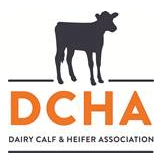
The newborn calf's immune system is underdeveloped, so it depends on colostrum to supply critical "passive immunity" to ward off illness and infection, plus other colostral factors necessary to enhance calf health, growth and performance.

But not all colostrum is created equal. High quality colostrum depends on a number of factors:
- Mom's health and immune status. Healthier, vaccinated cows have higher antibody levels in their colostrum.
- Effective cleaning of the udder and sanitization of hands and containers. Colostrum should measure less than 100,000 cfu/ml TPC (total plate count). Total coliform count should be less than 10,000 cfu/ml.
- Milking promptly. Cows should be milked within four hours after giving birth. Unused colostrum should be refrigerated quickly and discarded after three days. Frozen colostrum should be discarded after 6 months.
- Dry cow nutrition. High-straw rations currently popular among dairies can be tied to lower quality colostrum.
- Overcrowding. High levels of stress due to overcrowding of prefresh groups and a lack of feeding space can impact colostrum quality.
- Shorter dry periods. Research shows that colostrum quantity can be significantly lower in a 40 day dry period.
- Age. Colostrum IgG concentration increases with age.
- Leaking. Leaking milk pre-partum and milking before calving can reduce antibody levels.
- Breed. Jerseys typically score highest in colostrum IgG levels, Holsteins lowest.
- Weather/temperature extremes can negatively affect colostrum quality.
If the calf has ingested little or no colostrum, a colostrum replacer, such as Colostrx® CR, can help. Complete colostrum replacers contain bovine globulin proteins, along with energy, protein, vitamins and minerals. Colostrx® CR contains 130 grams of bovine globulin proteins.
Colostrum supplements, such as Colostrx® CS can be used when the calf has not ingested enough colostrum. In these cases, feeding a supplement is a good idea to help make sure the calf receives the immunoglobulins needed at birth. Whether a calf receives maternal colostrum, or requires a replacer or supplement, the addition of StressMate, to provide the other colostral proteins called bioactives, can help calves start strong and perform to expectations.
Like maternal colostrum, both colostrum replacers and supplements need to be fed as soon as possible after birth to be fully effective.
This DCHA Tip of the Week has been sponsored by AgriLabs.
10.30.2013